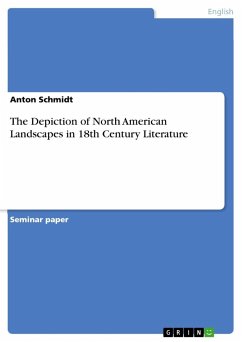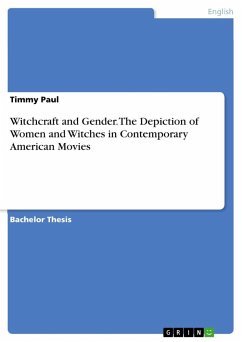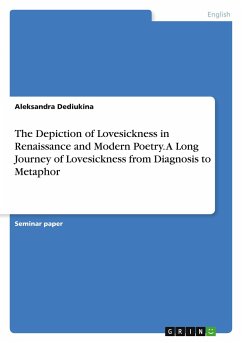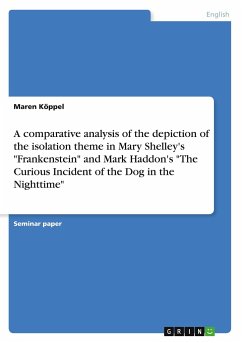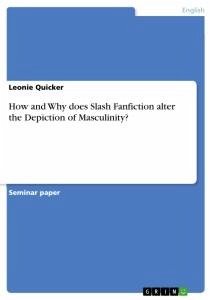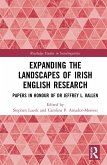Seminar paper from the year 2020 in the subject American Studies - Literature, grade: 1,7, University of Osnabrück (Sprach- und Literaturwissenschaft), course: Asymmetrical Nature(s), language: English, abstract: This paper will analyse the perception of North American nature and its landscapes of eighteenth-century writers, explorers, and politicians in three different genres, such as poetry, notes, and travel logs. It will deal with the impressions by Count Buffon from "La Histiore Naturele", Thomas Jefferson¿s discoveries in "Notes on the State of Virginia" and Richard Lewis¿ self-identification and satire in "A Journey from Patapsco to Annapolis". The first part of this research paper will explain different theories which are necessary for the analysis of these works. The paper will begin with the creation of meaning which landscapes have in literature. Then it will continue with the theory of landscapes as cultural phenomena which capture human history in their every layer of development with the arrival of a new era. Especially important is the identification of humanity as an inherent part of this construct. Furthermore, the paper will explain the traditional pastoral ideology ¿ a concept which most migrants from the Old World knew from their countries of origins and believed that it would benefit their economic growth and social virtue. American pastoral as an innovation of the New World colonies is essential for this research, as it aims at taming the seemingly virgin landscapes of Americas. Further, it is important to examine Humboldt¿s definition of landscapes as types of space and the role he assigns to humankind in their formation, recreation, and development. Humboldt paid attention to both nature and man perceiving nature as a whole, and humanity as a part of nature, meaning that there is no human free landscape. In addition to that, this paper will present the Eurocentric approach to the natural habitat in the colonies explained by Marie L. Pratt, which works well with the pastoral ideology, and Stilgoe¿s theory about the creation of landscapes which necessarily involves human initiative. This theory, to some extent, overlaps with Humboldt¿s understanding of landscapes. This paper will examine the concept of landscape in these three above-mentioned works as a cultural construct, applying these theories. The conclusions will be drawn based on differences and similarities of the respective observation of each chosen author. The question that is to be answered in my thesis is, how authors of travel literature in the eighteenth century perceived and interpreted North American landscapes.
Hinweis: Dieser Artikel kann nur an eine deutsche Lieferadresse ausgeliefert werden.
Hinweis: Dieser Artikel kann nur an eine deutsche Lieferadresse ausgeliefert werden.

